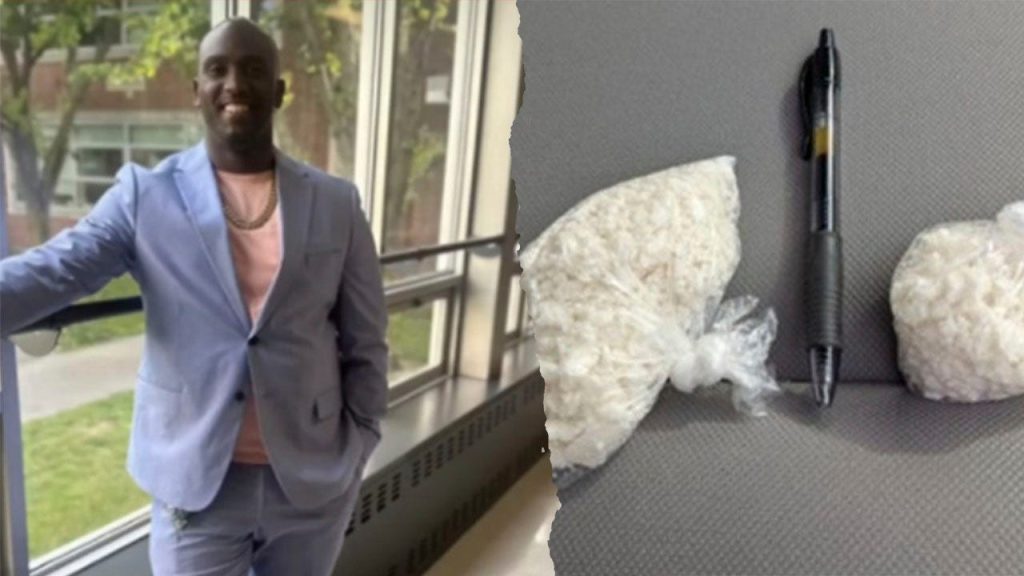Massachusetts Nonprofit CEO Charged with Cocaine Distribution
The founder and CEO of a Massachusetts legal nonprofit, known for its work in criminal record expungement, has found himself on the wrong side of the law in a troubling case that highlights the complex nature of rehabilitation and recidivism. Javan Tooley, the 36-year-old head of Adapt & Evolve, appeared in federal court recently where he pleaded not guilty to serious charges of cocaine distribution. The allegations against him paint a disturbing picture of a man who may have been using his position of trust to engage in the very activities his organization was designed to help others overcome. According to Justice Department officials, Tooley allegedly distributed 100 grams of crack cocaine in Dorchester, near his nonprofit’s location, on September 10, 2025. What makes this case particularly concerning is the claim that he conducted this drug transaction while a young child, estimated to be six or seven years old, was present in the backseat of his vehicle – adding a layer of child endangerment to the already serious charges.
The case against Tooley developed further when he reportedly contacted a cooperating witness to arrange another drug sale on September 23, 2025, near the Roxbury District Court. This second attempt led to his arrest, with authorities allegedly finding approximately 160 grams of crack cocaine in his possession at the time. The investigation has revealed troubling allegations about how Tooley may have leveraged his position at the nonprofit he founded. Prosecutors claim he specifically targeted vulnerable women struggling with substance abuse issues, recruiting them both for paid sexual activities that financially benefited him and for distributing controlled substances on his behalf. These allegations suggest a pattern of exploitation that stands in stark contrast to the mission of helping those with criminal records rebuild their lives.
The accusations against Tooley extend beyond drug distribution and exploitation. Federal prosecutors allege he used violence against his victims and provided them with drugs, potentially deepening their substance dependencies. Perhaps most concerning for those in the criminal justice reform community is the allegation that Tooley boasted about having connections to law enforcement and other influential officials through his nonprofit work – connections he may have been exploiting to facilitate his illegal activities. Investigators claim he even used the nonprofit’s phone to coordinate drug transactions, essentially using the organization as a front for criminal behavior while simultaneously presenting himself as an advocate for those seeking to move beyond their own criminal pasts.
This case is particularly poignant given Tooley’s own history with the criminal justice system. In 2010, he was convicted in Boston for distributing cocaine and sentenced to five years in federal prison. After his release around 2015, court records indicate he violated the terms of his supervised release on at least five separate occasions, resulting in his return to prison for nearly two additional years. This pattern of recidivism now culminates in these new charges, which carry significant consequences due to his prior conviction. If found guilty, Tooley faces a mandatory minimum sentence of 10 years in prison and potential fines of up to $8 million – a stark reminder of how enhanced penalties for repeat offenders function within our criminal justice system.
The irony of Tooley’s situation cannot be overlooked. As the founder of a nonprofit dedicated to helping individuals expunge their criminal records and reintegrate into society, he positioned himself as someone who understood the challenges of rehabilitation firsthand. Many such organizations are founded by formerly incarcerated individuals who use their personal experiences to help others navigate similar challenges. These organizations often play a crucial role in addressing the barriers that those with criminal records face in securing employment, housing, and other necessities for successful reintegration. The allegations against Tooley, if proven true, not only represent a personal failure but potentially undermine the important work being done by legitimate reentry and expungement organizations across the country.
This case raises important questions about oversight and accountability within nonprofit organizations, particularly those working with vulnerable populations. While the presumption of innocence remains fundamental to our justice system, and Tooley has pleaded not guilty to these charges, the case serves as a reminder of the importance of proper vetting, transparency, and governance structures within organizations that serve marginalized communities. For those who have been supported by Adapt & Evolve in their efforts to move beyond past mistakes, these allegations may feel like a betrayal of trust. Yet it’s important to recognize that the alleged actions of one individual should not diminish the legitimate and necessary work being done by countless other organizations and individuals dedicated to criminal justice reform and helping those with criminal records build new lives. As this case proceeds through the court system, it will likely spark important conversations about second chances, accountability, and the complex journey of rehabilitation.


